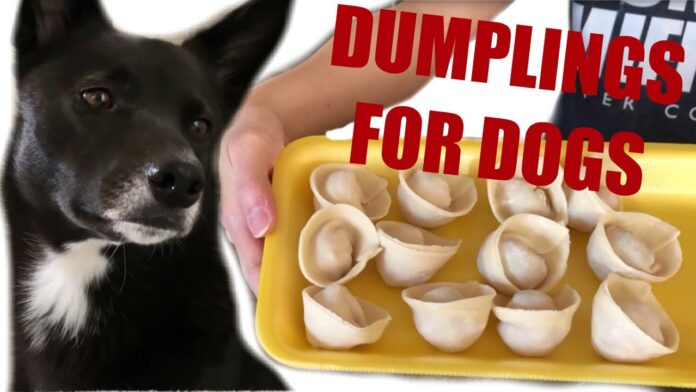Hey there, fellow pet parents! Ever caught your pup giving you those irresistible puppy eyes while you’re enjoying some delicious dumplings? I’ve been there, and I know the struggle is real! Today, let’s dive deep into whether our four-legged besties can share in this yummy comfort food.
The Quick Answer
TL;DR While plain dumplings aren’t immediately toxic to dogs, they’re not really recommended for your furry friend There’s actually a bunch of reasons why you might wanna think twice before sharing your dumpling feast with your pup!
Why Dumplings Might Not Be Your Dog’s Best Friend
1. The Wrapper Problem
- Most dumpling wrappers are made from refined flour
- They’re basically empty calories for dogs
- Can cause quick weight gain
- Might trigger gluten sensitivities in some doggos
2. The Filling Fiasco
Common dumpling fillings that could be problematic:* Garlic and onions – These are straight-up toxic to dogs* Heavy spices – Can upset their tummy real bad* High salt content – Not great for doggy health* Fatty meats – Could lead to pancreatitis
What Could Happen If Your Dog Eats Dumplings?
Listen up fam – here’s what might happen if your furry friend sneaks some dumplings
-
Mild Symptoms
- Upset tummy
- Extra thirsty behavior
- Temporary lethargy
-
More Serious Issues:
- Vomiting
- Diarrhea
- Pancreatitis (if super fatty)
- Salt poisoning (from high sodium content)
Help! My Dog Just Ate a Dumpling!
Don’t panic! Here’s what you should do:
-
First things first:
- Check what kind of dumpling it was
- Try to figure out how many they ate
- Note any ingredients you know about
-
Monitor your pup for:
- Changes in behavior
- Signs of distress
- Unusual thirst
- Bathroom habits
-
When to call the vet:
- If the dumpling contained toxic ingredients
- If your dog shows signs of distress
- If they ate multiple dumplings
- When in doubt, just call!
Safer Alternatives to Share With Your Dog
Instead of dumplings, try these dog-friendly treats:
-
Protein Options:
- Plain, cooked chicken
- Lean beef pieces
- Turkey (no seasonings)
-
Veggie Choices:
- Carrots
- Green beans
- Sweet potato (cooked)
Making Dog-Safe “Dumplings”
Wanna get creative? Here’s a fun recipe for dog-safe “dumplings”:
Ingredients:
- Ground turkey or chicken (lean)
- Pureed pumpkin
- Sweet potato
- Brown rice flour
Simple Steps:
- Mix ingredients together
- Form small balls
- Steam or bake until cooked through
- Let cool before serving
The Bottom Line
Look, I get it – saying no to those puppy dog eyes is SUPER hard! But when it comes to dumplings, it’s better to be safe than sorry. Your fur baby’s health comes first, right?
Pro Tips for Dumpling Safety
-
Keep em away:
- Store dumplings out of reach
- Don’t leave plates unattended
- Secure trash cans (sneaky pups are sneaky!)
-
Family education:
- Tell everyone not to share dumplings
- Keep kids from feeding them to pets
- Have safe treats ready instead
FAQs About Dogs and Dumplings
Q: What if my dog only ate the wrapper?A: Plain wrappers are less concerning, but still watch for tummy troubles.
Q: Are frozen dumplings worse?A: They could be! Raw ingredients might cause extra problems.
Q: Can one dumpling kill my dog?A: Probably not, but it depends on ingredients and your dog’s size.
Final Thoughts
Y’all, I know it’s tempting to share everything with our furry friends, but some human foods just ain’t worth the risk. Dumplings fall into that category – they’re better left for us humans to enjoy.
Instead of sharing your dumplings, why not keep some dog-safe treats handy? Your pup will be just as happy, and you’ll have peace of mind knowing you’re keeping them safe and healthy.
Remember: When in doubt, leave it out! And always check with your vet if you’re unsure about any food your dog has eaten. Better safe than sorry, am I right?
Stay pawsome, pet parents!
Disclaimer: This article is for informational purposes only. Always consult with your veterinarian about your dog’s specific dietary needs and restrictions.












